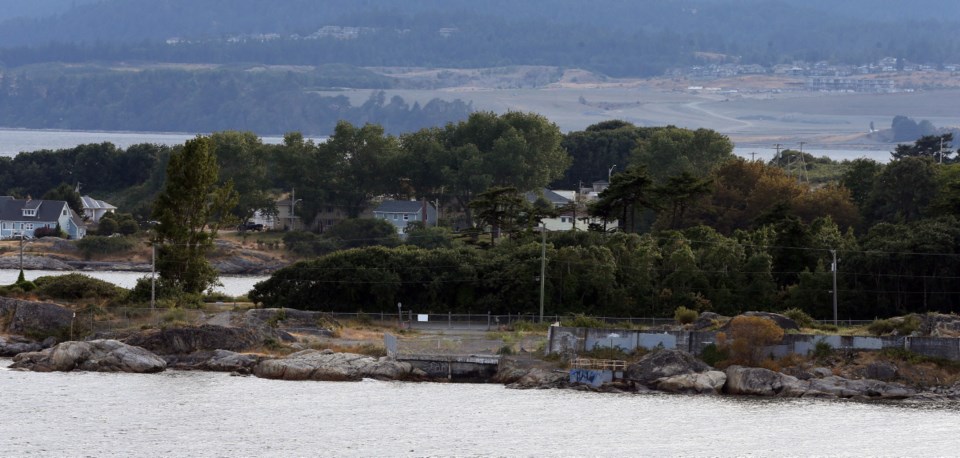Pressure is mounting on local politicians to dismantle Seaterra, the arm’s-length body mandated by the province to build Greater Victoria’s sewage treatment plant.
Capital Regional District directors have received a petition from local business owners complaining it is ludicrous to be spending more than $100,000 a month on Seaterra to manage building a sewage treatment plant at McLoughlin Point when that plan is no longer being considered.
“I absolutely think we have to evaluate where we are with that [Seaterra] program,” said Esquimalt Mayor Barb Desjardins.
“There is no [sewage treatment] plan right now. … Their mandate is quite small. It’s to keep us on time and on budget with the former plan. There is now no plan. Therefore, why are they still existing?”
But getting rid of Seaterra may not be as simple as it seems.
The creation of the Seaterra commission was mandated by the province. Before the province would agree to kick in $248 million toward the project’s $788-million budget back in 2012, it insisted an independent body of unelected technical experts be brought in to shepherd the project to completion. While local politicians were to retain broad oversight, the seven-person commission was to have day-to-day control over tendering, construction, financing and communications.
An independent project management office was set up and the project was branded Seaterra.
But that was when the plan was to build a single regional sewage treatment plant at Esquimalt’s McLoughlin Point. That all went south when Esquimalt, in the face of public opposition, refused to rezone McLoughlin for the plant.
Now, with CRD directors scrambling to come up with a new plan, Seaterra has little to do, but has a big budget to do it. Seaterra program management is budgeted at $6.1 million for this year, including $2.3 million in salaries and $2.9 million for consultants, according to the latest management-expenditure report.
Victoria Coun. Ben Isitt is no fan of having a third party manage the sewage treatment project and voted against the bylaw to create it. But he’s worried that dismantling Seaterra could put federal and provincial grants at risk.
“I don’t want to risk compromising those funds, which could have an impact of potentially doubling the property-tax contribution to the project,” Isitt said.
Isitt believes the management office could probably be leaner, but said spending, including decisions relating to staffing, are under the control of the Seaterra commission.
“I personally think the project could be ramped down substantially, more in terms of cost-containment. Unfortunately, the [CRD] board doesn’t decide, the commission does. That’s the structure the province has imposed on us,” Isitt said.
Desjardins thinks there may be ways to make changes at Seaterra without putting the senior-government funding at risk.
“The province and the federal government are all on side with us succeeding and getting a plan. How we best do that is what they would support, in my mind,” she said.
Desjardins also wonders whether Seaterra “is the right group to take the next program forward.”
Victoria Mayor Lisa Helps, who recently took over as chairwoman of the CRD’s sewage committee, admits there are concerns from the business community and around the board table about the current management structure.
But she said the goal at this point is to continue within the existing structure to make it work.
“It’s a question of relationship building. I think people who have been watching me for the last five months know that we’re not going to get anywhere unless we build relationships, not dismantle them,” Helps said.
And, she said, a new plan for sewage treatment will be in place soon.



